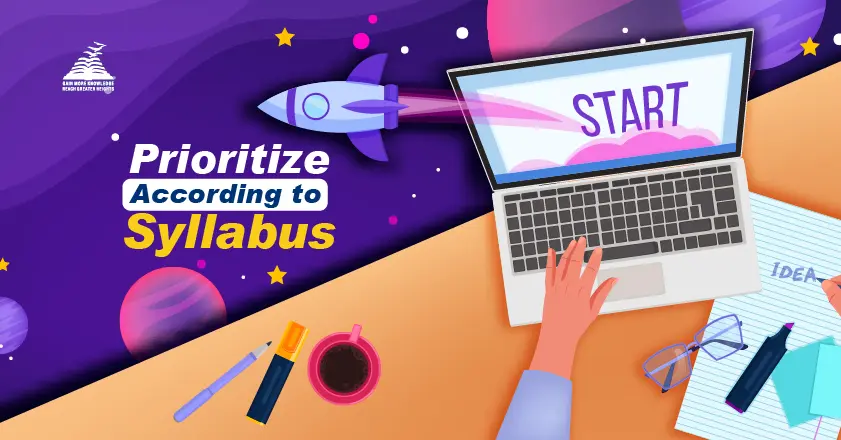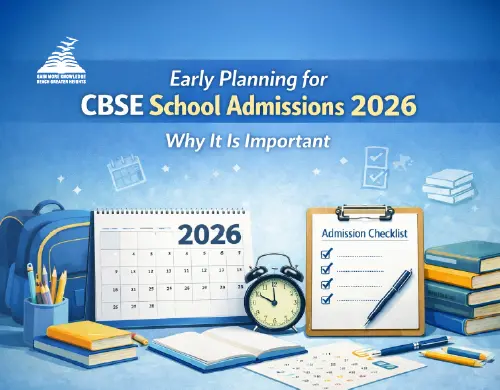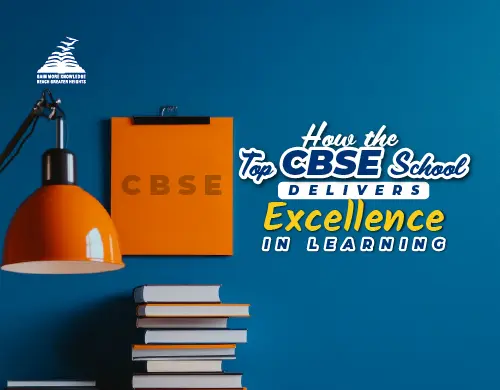When exam season approaches, many students find themselves overwhelmed by scattered notes, misplaced books, and endless piles of worksheets. The truth is, your ability to study effectively is not just about how much you read—it’s also about how well you organize your resources. A clutter-free, structured study system saves time, improves focus, and boosts productivity. Whether you’re studying at one of the good schools in Bangalore East or preparing for exams in the top 10 CBSE schools in Bangalore, learning to organize study materials can make all the difference.

1. Start with Decluttering – Remove outdated notes and irrelevant material to keep only what’s useful
The first step in building an effective study space is decluttering. Old worksheets, duplicate notes, and outdated handouts often pile up and create unnecessary confusion. Clear your desk and shelves of anything you don’t need for the current term. Students in the best schools in Bangalore East are often encouraged to review and sort their study material regularly so they can focus only on what’s relevant for exams.
2. Categorize by Subject and Topic – Divide material into clear sections for easy access and focus.
Once you’ve cleared the clutter, divide your material by subject. Within each subject, create sections for individual topics or chapters. This categorization saves time during revision because you know exactly where to find what you’re looking for. For example, Science can be split into Physics, Chemistry, and Biology, with sub-folders for each. These habits, when developed early, become powerful study habits that lead to long-term success.
3. Use Folders and Labels – Color-coding or digital folders make retrieval faster and more efficient
Color-coded folders or binders are simple yet effective tools for organizing. Assign each subject a specific color—Math in blue, English in red, Science in green and stick to it. If you prefer digital organization, create separate folders on your laptop or tablet with proper labels. Students from schools in Kasturi Nagar and other top schools in Bangalore often find that this system saves precious minutes when revising multiple subjects.
4. Create a Master Index – A quick reference list of topics to avoid wasting time searching
Think of a master index as your personal map to all your study resources. A simple page that lists where each topic is stored—whether in a folder, a notebook, or a digital file prevents endless searching. This tool enhances time management and ensures that you spend your energy on actual studying rather than flipping through piles of paper.
5. Prioritize According to Syllabus – Arrange notes in the same order as the exam syllabus or curriculum
Your study schedule should match your school’s curriculum. Arrange your notes in the same sequence as the exam syllabus to make sure you don’t skip any topics. This strategy is particularly useful for students at the best schools in Bangalore, where exams are structured around detailed syllabi. By aligning notes to the syllabus, your revision becomes systematic and exam-focused.
6. Highlight Key Concepts – Use sticky notes, markers, or summaries to emphasize important points.
Highlighting isn’t just about making notes look colorful; it’s about drawing attention to what’s most important. Use sticky notes for quick reminders or margin notes for summaries. These techniques help emphasize formulas, key dates, or definitions. They also make revision faster because your eyes naturally go to highlighted points, improving productivity and recall.
7. Digitize Your Notes – Scanning or Typing Material Ensures Backup and Easy Sharing
Technology is a student’s best friend. Digitizing your notes by scanning or typing them ensures that they’re safe and easily accessible anytime. Cloud storage apps like Google Drive or OneNote allow you to access your material even if you’re away from home. Many good preschools in Bangalore already introduce young learners to digital tools, making it easier for older students to adapt these strategies in higher classes.
8. Use Flashcards and Mind Maps – Condense large topics into quick-revision tools
Flashcards and mind maps are powerful effective study techniques. They condense big topics into simple, visual chunks that are easy to remember. For example, you can create flashcards for historical dates or math formulas and use mind maps for complex science processes. These tools are especially helpful in the days just before exams, when quick revision is most effective.
9. Schedule Regular Updates – Keep your material fresh by revising and adding new notes after each class.
Staying consistent with organization matters. Instead of letting notes pile up, take 10 minutes after class to organize them in their respective folders. By regularly updating your system, you avoid last-minute chaos. Students in the best schools in Bangalore East who follow this simple routine find themselves better prepared and more confident during exam season.
10. Prepare a Revision-Ready Kit – Create a condensed version of notes for last-minute exam prep
As exams get closer, it’s not practical to go through every page of every notebook. This is where your revision kit comes in handy. Prepare a condensed version of your notes—one or two pages per subject with only the most essential information. This kit acts as your quick guide for last-minute prep and helps you feel calm and ready.
Presidency School Bangalore East – Guiding Students Towards Academic Excellence
Located in Kasturi Nagar, Presidency School Bangalore East has built a strong reputation as one of the best schools in Bangalore East. Known for its structured approach to academics, the school helps students develop effective study habits and organizational skills that directly impact performance.
With supportive teachers, modern facilities, and a focus on holistic learning, the school equips learners with strategies like time management, structured note-making, and exam readiness techniques. As one of the top 10 CBSE schools in Bangalore, Presidency School Bangalore East ensures that students don’t just study harder but study smarter preparing them for success in academics and beyond.
Conclusion
Organizing your study material is not just about neatness; it’s about building smarter systems that save time, reduce stress, and boost performance. From decluttering and using folders to creating a master index and digitizing notes, every step contributes to more effective learning. Whether you are in schools in Kasturi Nagar, preparing at one of the good schools in Bangalore East, or aspiring to join the top 10 CBSE schools in Bangalore, these strategies can transform your study sessions. Remember, a well-organized study system builds discipline, sharpens focus, and creates the right learning environment for long-term success.





